We all know that a big percentage of Vitamin D is provided to the body through sun exposure, which is why some also call it the sunshine vitamin. In addition to its numerous health benefits, it is often that people opt for vitamin D supplements to boost weight loss, which makes us wonder, how is low Vitamin D and weight gain related? And does vitamin D deficiency cause weight gain? Keep reading to find out.
Contents
What Is Vitamin D?

Vitamin D, also known as Calciferol, is a fat-soluble vitamin produced in the skin in response to sunlight; when your skin is exposed to sunlight, the UV (Ultraviolet) rays work on synthesizing Vitamin D in your body. It is also naturally consumed in certain foods, or through a Vitamin D supplement that ensures adequate levels of Vitamin D in your body.
Vitamin D Forms
Vitamin D comes in two forms, depending on its food source.
- Vitamin D2 (also called Ergocalciferol), found in animal-sourced foods such as fatty fish (salmon, mackerel, sardines…) liver, butter, egg yolk, etc.
- Vitamin D3 (also called cholecalciferol), found in plant-sourced foods such as fortified cereals, fortified orange juice, fortified soy/almond/rice milk, mushrooms, etc.
Vitamin D: Overdose And Deficiency
Overdoses in vitamin D are very rare and can only happen due to your dietary intake, unlike Vitamin D produced from sunlight, as your skin simply stops or produces less once you get your full dose.
Being deficient in vitamin D on the other hand is pretty common, and can have a really negative impact on your health. Vitamin D has numerous functions in the human body; it works on regulating both calcium and phosphorus, and ensures a good functioning of the immune system. Providing your body with enough vitamin D will also enhance your bone and teeth growth and strengthen your health against multiple disorders and diseases such as soft bones (osteomalacia) and fragile bones (osteoporosis).
However, getting vitamin D from sun exposure and foods can be insufficient, which is why people opt for vitamin D supplementation to avoid the risk of Vitamin D deficiency.
How Much Vitamin D Do You Need To Take?
Your daily amount of vitamin D varies depending on your age. According to the National Institutes of Health (NIH), the Average recommended amount in mcg (micrograms) is as follows:
- Infants aged 12 months and younger: 10 mcg (400 International Unit)
- Children aged between 1 and 13 years: 15 mcg (600 International Unit)
- Teens aged between 14 and 18 years: 15 mcg (600 International Unit)
- Adults aged between 19 and 70 years: 15 mcg (600 International Unit)
- Adults aged 71 years and older: 20 mcg (800 International Unit)
- Pregnant and breastfeeding women: 15 mcg (600 International Unit)
Foods That Are High in Vitamin D
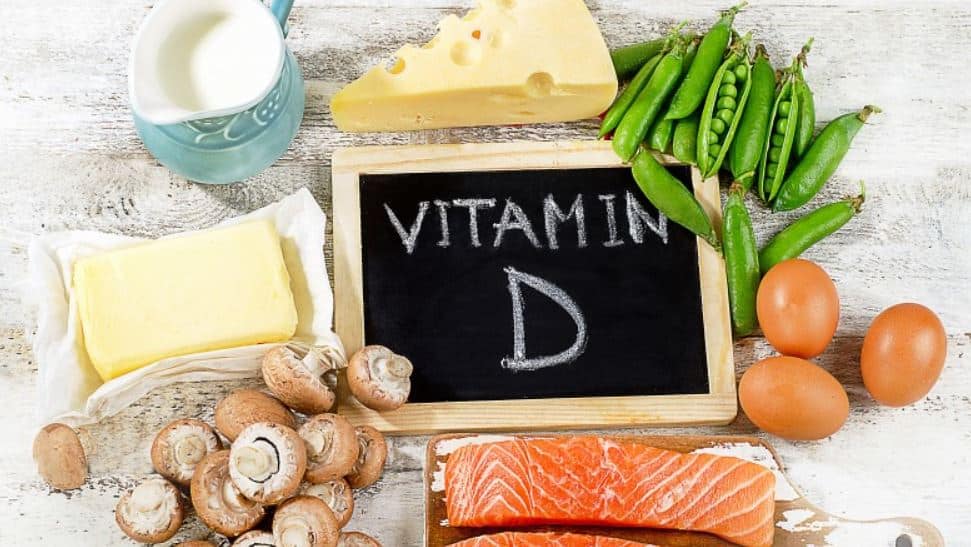
If you plan on increasing your vitamin D levels through natural food, you can opt for:
- Cooked Salmon: 245 IU per serving of 75g
- Canned Salmon: 202 IU per serving of 75g
- Cooked Herring: 161 IU per serving of 75 g
- Cooked Trout: 148 IU per serving of 75 g
- Unsweetened Soy Milk: 87 IU per serving of 250 ml
- Cooked Mackerel: 78 IU per serving of 75g
- Canned Sardines: 70 IU per serving of 75g
- Cooked Egg Yolk: 32 IU per serving of 1 egg
Vitamin D Deficiency

The main factors behind suffering from Vitamin D deficiency are mainly linked to sun exposure as not many foods are rich in it. For instance, living in an area with highly polluted air can affect your daily dose of sunlight, as well as living in cities with big buildings that block it, or living far from the equator with very few sunny days.
Spending very little time outdoors can also lower your vitamin D levels, as well as having dark skin; dark skin means you have high melanin levels, which also means that your skin can’t absorb sunlight easily.
Since you can’t control most of these factors, looking for other ways to supplement your body with vitamin D is necessary.
Symptoms of Low Vitamin D Levels
Deficiency in vitamin D can be diagnosed through a simple blood test and can have many symptoms, including:
- Tiredness and fatigue
- Mood swings
- Depression
- Muscle cramps
- Bone aches
- Bone and hair loss
- Stress fractures (in legs, pelvis, and hips)
If you suffer from a Vitamin D deficiency, resorting to vitamin D supplements is necessary to complete your dietary daily intake. If you have a severe deficiency, consult with your doctor for high-dose vitamin D supplements.
Low Vitamin D And Weight Gain

Many studies are associating low Vitamin D and weight gain, high body mass index, and body fat percentage. Nevertheless, the relationship between these elements is still confusing. Some people claim that the reason behind it is overweight or obese people not consuming healthy foods rich in vitamin D, while others state that overweight people tend to show less skin which prevents them from getting enough vitamin D from sunlight.
In addition to that, vitamin D needs specific enzymes to function, and overweight people have fewer active ones. Not to mention that the amount of vitamin D you need depends on your size. Overweight and obese people need more vitamin D than normal-weight ones, which makes them more susceptible to suffer from vitamin D deficiency.
This means that the body weight can be directly linked to vitamin D levels. Once you lose weight, your body’s need for vitamin D decreases as well. However, the amount of vitamin D in your body remains the same, which makes the actual vitamin D levels in your body higher than the required ones, eventually connecting weight loss to high vitamin D.
Does Vitamin D Help Lose Belly Fat?

Since vitamin D deficiency and weight gain are connected, it might also contribute to obesity. Studies have found that people with a +30 BMI (Body Mass Index) often have low levels of vitamin D.
Considering that a big percentage of vitamin D is provided through sun exposure, the human body uses it as an environmental sensor. Periods of low sunlight mean that the body needs to effectively store more energy than usual, and this energy is stored as fat.
For a big number of people, this fat accumulates around the waistline and belly to access it easily through the liver and send it to the bloodstream.
Following this logic, providing your body with enough vitamin D may help lose belly and body fat. (at least 20 nanograms per milliliter)
Sticking to a low-calorie diet and regular workout can be very helpful to lower your body mass index, and increasing vitamin D in your blood is ideal to complete the task.
Apart from that, vitamin D is also responsible for adipogenesis (fat cells formation), and providing your body with adequate vitamin D status can remarkably reduce them.
Also, the vitamin D receptors in the brain (mainly in the hypothalamus which controls numerous bodily functions and releases hormones from the pituitary gland) decrease PTH production (Parathyroid Hormone), a hormone involved in weight gain.
Can Lower Vitamin D Levels Affect Your Metabolism?
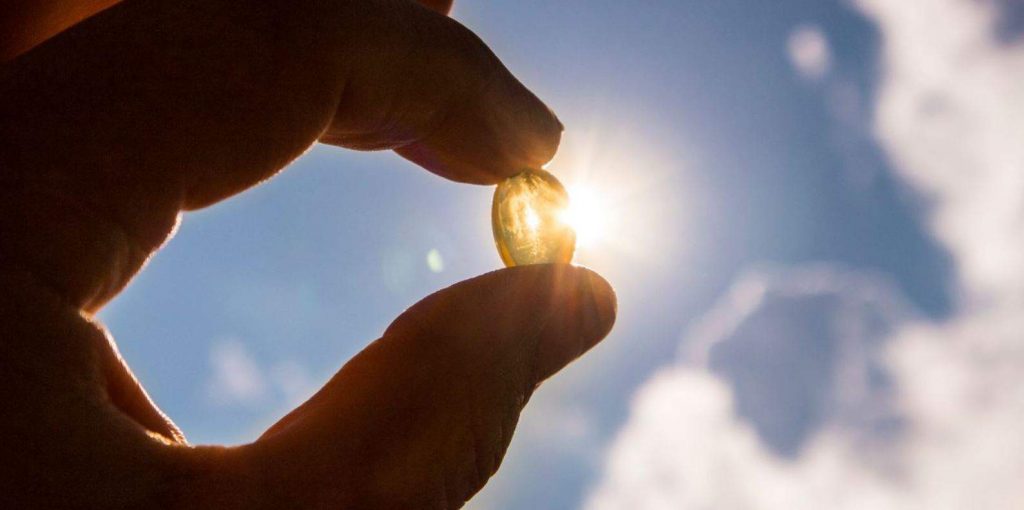
Vitamin D plays a very important role in metabolizing foods in the body as vitamin D receptors (VDRs) can be found in a large number of cell types (over 30).
Along with its crucial functions in bone health by ensuring calcium homeostasis and bone metabolism, recent studies are now focusing on its effects on cancer, cardiovascular health, and weight loss.
A study published in 2018 has shown that vitamin D deficiency and weight gain can be linked to metabolic illnesses and diseases such as:
- Insulin Resistance
- Obesity
- Cardiovascular diseases (hypertension for example)
- Diabetes Mellitus
- Metabolic Syndrome
Conclusion
The bottom line on vitamin D deficiency and weight gain is that: alone, Vitamin D might not be very efficient for weight loss. However, if combined with a calorie-restricted diet and regular workout, vitamin D supplementation can enhance your metabolism by burning more calories and boosting weight loss, along with improving your overall health.
If you suffer from a metabolic disease and want to lose weight, make sure to consult with your doctor before resorting to a vitamin D supplement. Self-treating severe diseases can end up with harmful consequences.
We hope the information we provided in this article was helpful. Feel free to ask us if you have any questions!





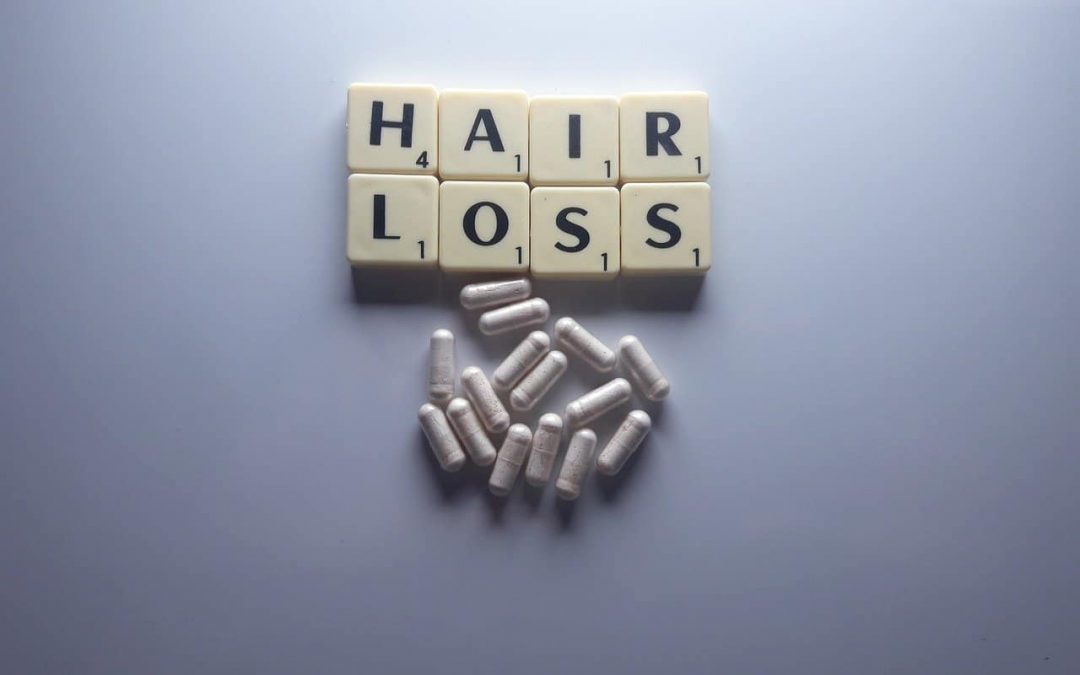
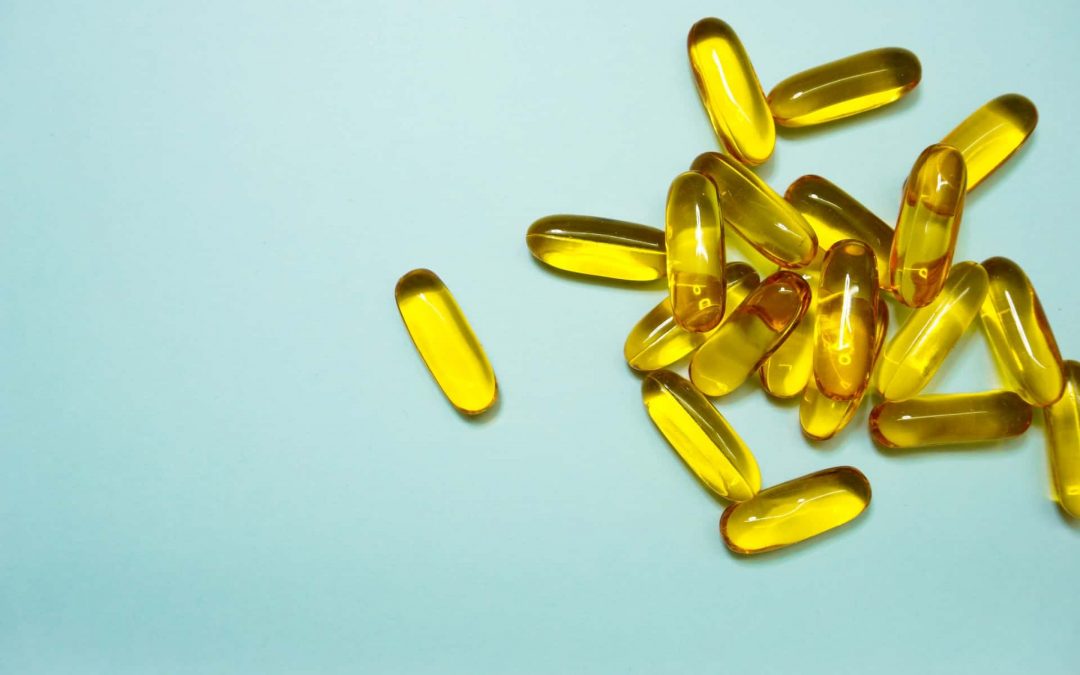
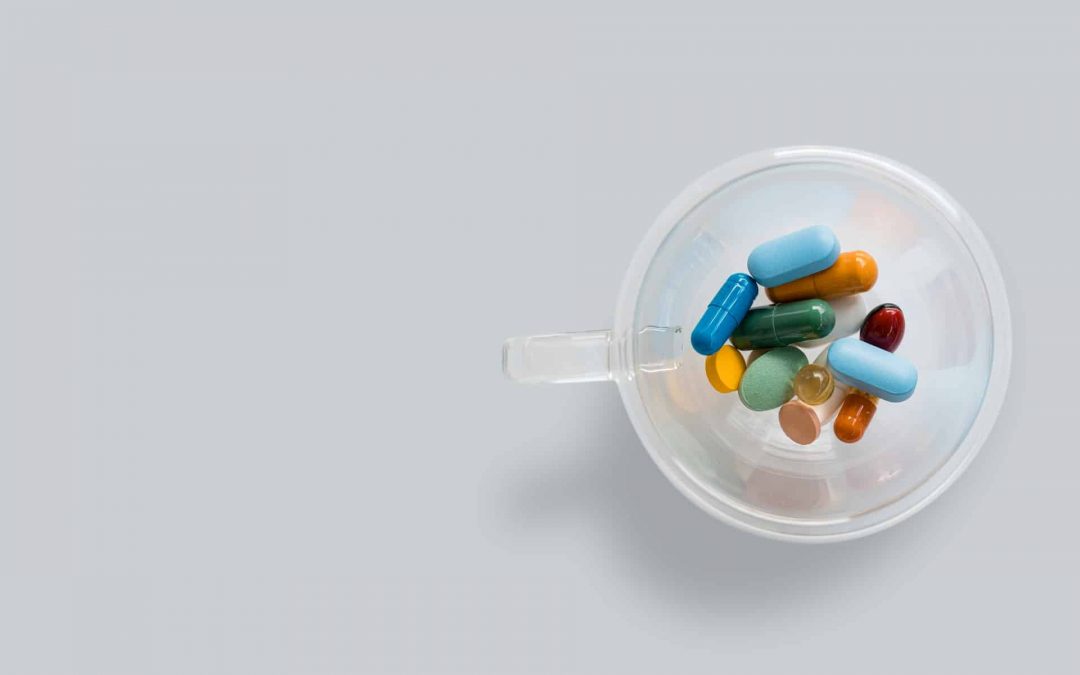



0 Comments